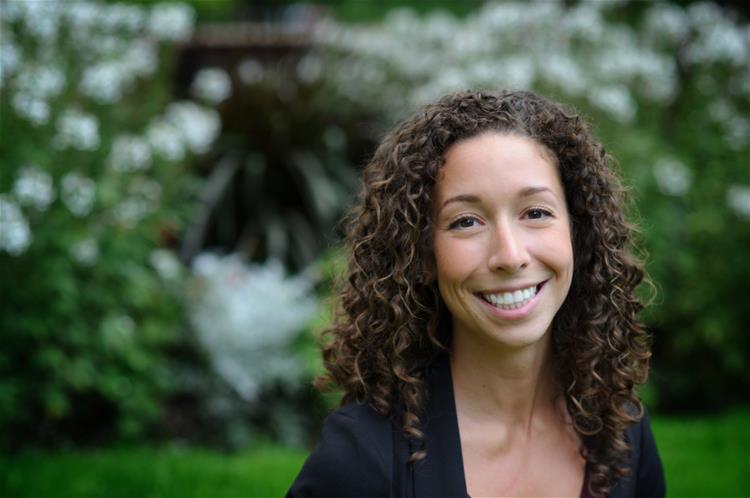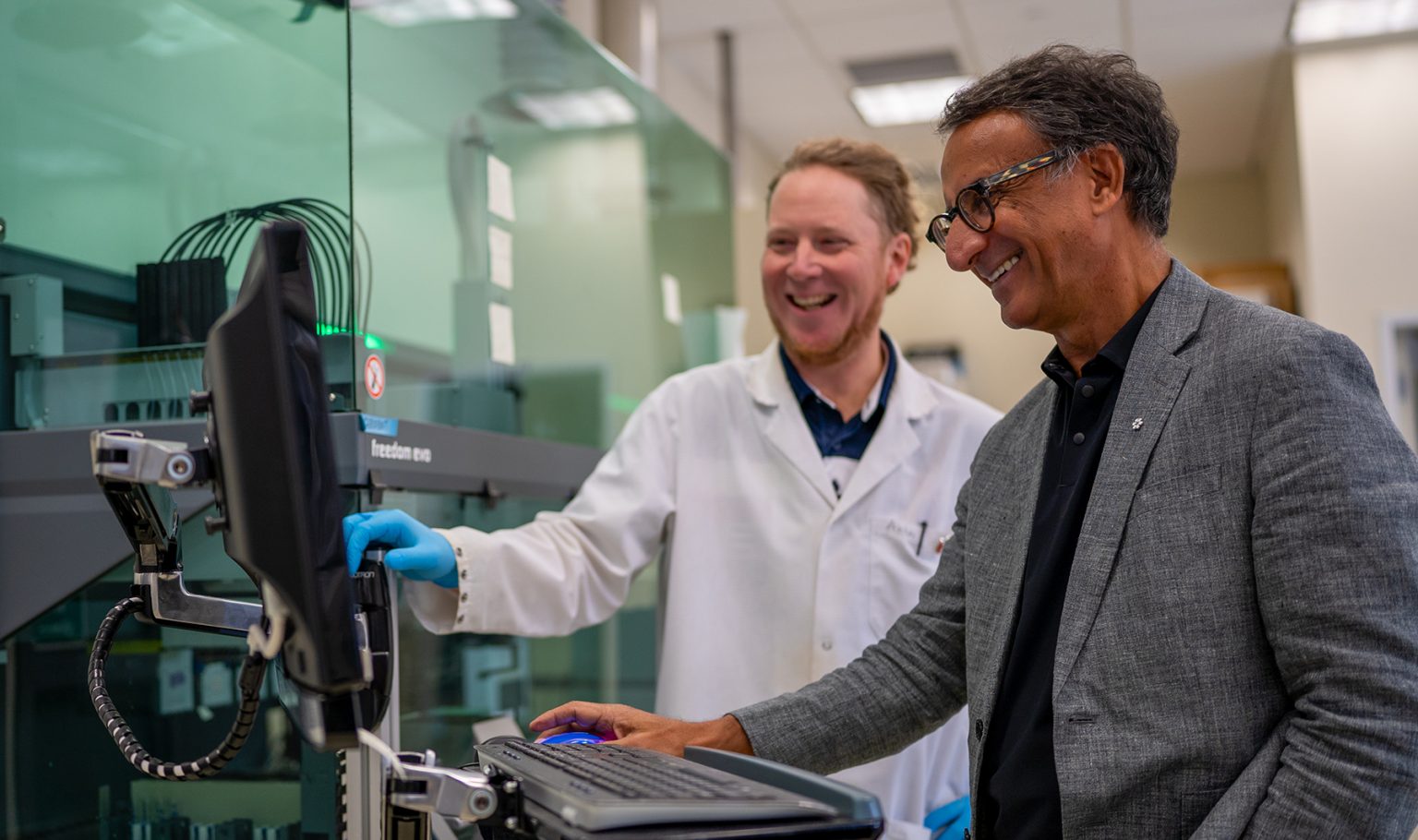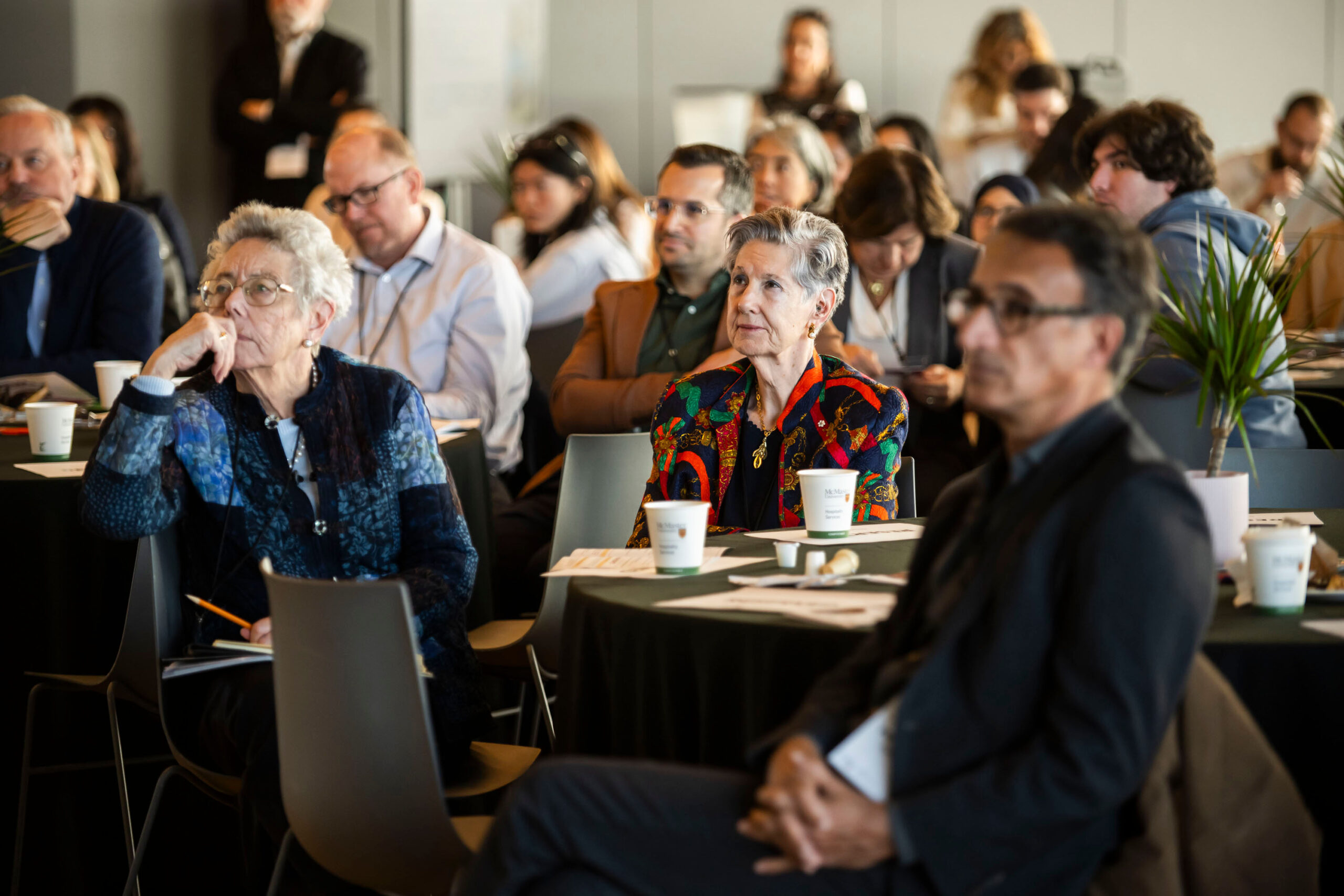
Published: March 4, 2020 | By Emily Dunford
Dr. Megan Racey is a Post Doctoral Fellow working with MIRA, the Canadian Frailty Network, and the McMaster Evidence, Review and Synthesis Team. During this interview, Megan spoke to us about her ongoing research and involvement with the MIRA Trainee Network.
Q: What brought you to be part of the MIRA trainee network?
As a Post Doctoral Fellow, my research is funded in part by MIRA along with the Canadian Frailty Network and the McMaster Evidence Review and Synthesis Team. It was through this funding opportunity that I was exposed to the trainee network and have enjoyed connecting with this group of interdisciplinary colleagues whose research relates to aging. The unique and diverse perspectives of the group encourage a new way of thinking about problems and help create a shared understanding in a complex, multidisciplinary field.
Q: Tell us about the research project you are currently working on.
Currently, my post-doc research focuses on creating nutrition and physical activity clinical practice guidelines for older adults living with frailty. To do this, we are conducting systematic reviews and meta-analyses to support the Canadian Frailty Network in developing evidence-based guidelines and recommendations for healthcare professionals and researchers.
Q: How does it relate to the aging population?
Frailty is not a specific medical condition or disability but rather a syndrome that results from multiple factors and impairments that can reduce an individual’s functional ability. It is not age-dependent nor is it a natural outcome of aging. Currently, over 1.5 million Canadians are diagnosed as medically frail and this number is expected to rise to over 2 million Canadians within 10 years. As a condition, it is poorly understood, pervasively under-recognized, and under-appreciated by healthcare professionals and the public resulting in high consumption of healthcare resources and an increased burden on caregivers.
Q: Why do you think the impact frailty has on the healthcare system largely goes under-recognized and under-appreciated?
Currently, our healthcare system is set up to deal with illnesses based on single body systems and diseases, not the complex multi-system problems of those living with frailty. When you are frail, your body does not have the ability to cope with minor illnesses that would normally have minimal impact if you were healthy. With frailty, these minor stressors may trigger rapid and dramatic deterioration. Older adults living with frailty are more susceptible to large declines in health from minor illnesses such as the flu or adverse events like falls and are more likely to be hospitalized, need long term care or die. Additionally, as a condition, frailty is hard to diagnose because it is poorly understood by healthcare professionals and involves time-intensive tests. It is a multi-faceted condition consists of unintentional weight loss (10 or more pounds within the past year), muscle loss and weakness, a feeling of fatigue, slow walking speed and low levels of physical activity.
Q: What is the ultimate goal/purpose of your research?
Despite research evidence related to nutritional and physical activity interventions, there is a gap in the provision of evidence-based care focused on preventing and managing frailty among older adults. For example, current physical activity guidelines for seniors may be too advanced or too intense for a more frail population. This can result in falls or injuries and other adverse health outcomes. Therefore, this research will help address this gap and provide specific guidelines to understand and treat frailty within the older adult population.
Q: Is it possible for frail older adults to recover and return to a healthy older adult status? If so, what are the key components of a multifactorial approach?
While it is difficult, research shows that some pre-frail or frail older adults can see improvements in the measurements that comprise frailty status tools. Returning to a fully healthy older adult status is quite difficult but would depend on the frailty of the individual. To address frailty, individuals should do a mixture of exercises, including aerobic and muscle-strengthening activities, and eat a healthy, balanced diet that is high in protein. The exact details of these components will be further investigated in my research.
Q: What are the challenges and limitations of conducting research on optimizing physical activity interventions for frail adults?
There are multiple challenges in conducting physical activity research on frail older adults. This population is at a higher risk of falls and injury, especially during physical activity, so exercises need to be modified and safe for them to perform. This can also limit the type and intensity of the physical activity, which are important components when looking for health benefits (the higher the intensity, the better!). Frail older adults also represent a very diverse population, and therefore require personalized approaches. A combination of factors can make a person classified as frail and these factors can differ between individuals. This also makes the research hard to interpret and integrate as the study populations can be very different, even if they are all frail. Like many individuals, frail older adults struggle with motivation to do physical activity, so attrition to the exercise prescription or program can impact the observed benefits.
Q: How do you think working with older adults in your post-doctoral fellowship will shape your future work even if you aren’t planning on continuing your work with older adults?
I am passionate about creating impact from research and translating research results into real-world contexts. Working with older adults continues to evolve and expand my abilities in communicating research to various stakeholder groups. It has also allowed a greater appreciation for our aging population and challenged me to see ways this work can impact the daily lives of older adults.
Thank you, Megan, for discussing your exciting research. If you have an interest in Megan’s research, please contact her at raceym@mcmaster.ca
This ​blog post was first published by the MIRA Trainee Network. Read the original article

